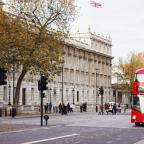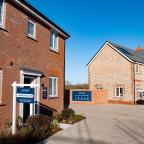
Increasing the stamp duty threshold could benefit 86% permanently
The latest research by lettings and estate agent, Benham and Reeves, has highlighted how many homebuyers could benefit each year if the government were to permanently increase stamp duty tax thresholds and remove tax for purchases up to £350,000, £500,000 and £750,000.
There’s no denying that the current stamp duty holiday has helped rejuvenate homebuyer demand, with 85% of buyers benefitting from paying no stamp duty since the reprieve was introduced in July of last year.
However, many believe that this archaic tax, first introduced to fund a war against France, should be scrapped completely, acting as nothing more than an additional financial hurdle for already hard-pressed homebuyers.
While this is unlikely to happen, with hopes of an extension also seeming thin, Benham and Reeves has looked at how increasing the tax-free price threshold could help the nation’s homebuyers.
Benham and Reeves analysed residential property market transactions to have completed throughout 2020 and found that, had the current holiday been in place for the duration of the year, it would have seen 86% of homebuyers across England pay no stamp duty.
405,358 transactions would have paid no stamp duty at all, compared to just 62,695 transactions had stamp duty rates remained at normal levels.
With no holiday in place at all, homebuyers would have paid up to the tune of £4.1bn while this would have fallen to just £1.7bn had the holiday been in place for the full 12 months. Had this been the case, it would have saved homebuyers a huge £2.4bn.
Increasing the threshold at which no tax is owed to £750,000 would see 95% of all transactions pay no stamp duty, while even a reduction to just £350,000 would still benefit 71% of all homebuyers across England.
Should the current stamp duty holiday rates be kept in place, it would have contrasting benefits for each region.
Across London and the South East it would reduce the overall stamp duty paid by £592.8m and £613.1m respectively, the biggest savings of all regions. While in the North East, Yorkshire and North West between 97%-98% of all buyers would pay no stamp duty at all.
Director of Benham and Reeves, Marc von Grundherr, commented:
“Stamp duty tax really acts as the property market definition of rubbing salt in the wound. After months, even years, of saving to get a foot on the ladder, homebuyers are then hit with thousands more in tax owed to the government.
Other than the monumental failure to deliver on their housing promises, it’s hard to see what involvement the government actually has in the housing market and so calls for stamp duty to be scrapped are extremely valid ones indeed.
But, of course, they will fall on deaf ears and homebuyers will continue to pay up for the pleasure of owning their own home. However, if the government were simply willing to meet in the middle and keep some level of stamp duty relief in place, the benefit to the market as a whole would be huge.
Even increasing the lowest tax band to £350,000 would be a marked improvement and would go some way in helping beleaguered homebuyers to get a foot on the ladder and to continue climbing it once they have.”
Data sourced from the Land Registry Price Paid records (Jan 2020-Dec 2020) for all residential transactions excluding those listed with a property type of ‘other’.
Please note that the data considers the benefit of the current holiday tax rates had they applied for the WHOLE of 2020 and how this compares to what would have been paid in 2020 if there was no holiday in place and regular rates applied.
It does not show the benefit or impact of the current holiday from when it was implemented.
|
Table shows the number and percentage of total transactions that would benefit from paying no stamp duty at each price threshold based on ALL resi transactions to complete in 2020 |
||||||
|
Location |
Number of transactions up to £350,000 |
% of transactions up to £350,000 |
Number of transactions up to £500,000 |
% of transactions up to £500,000 |
Number of transactions up to £750,000 |
% of transactions up to £750,000 |
|
NORTH EAST |
21,213 |
94.0% |
22,152 |
98.1% |
22,493 |
99.6% |
|
YORKSHIRE AND THE HUMBER |
43,511 |
90.2% |
46,701 |
96.8% |
47,880 |
99.2% |
|
NORTH WEST |
57,358 |
89.5% |
61,824 |
96.5% |
63,503 |
99.1% |
|
EAST MIDLANDS |
38,126 |
87.9% |
41,783 |
96.4% |
43,041 |
99.3% |
|
WEST MIDLANDS |
39,326 |
85.5% |
43,722 |
95.0% |
45,477 |
98.8% |
|
SOUTH WEST |
41,005 |
73.3% |
50,157 |
89.7% |
54,207 |
97.0% |
|
EAST OF ENGLAND |
36,300 |
64.3% |
48,056 |
85.2% |
53,857 |
95.5% |
|
SOUTH EAST |
44,309 |
54.7% |
63,943 |
79.0% |
74,835 |
92.5% |
|
LONDON |
11,165 |
21.7% |
27,020 |
52.6% |
39,970 |
77.8% |
|
ENGLAND |
332,313 |
70.9% |
405,358 |
86.4% |
445,263 |
95.0% |
|
|
|
|
|
|
|
|
|
Table shows the number of transactions completing for the WHOLE of 2020 that would have paid no stamp duty with the current holiday tax thresholds vs the usual market thresholds |
||
|
Location |
Transactions to pay no SDLT with current holiday tax thresholds |
Transactions to pay no SDLT with regular market tax thresholds |
|
EAST MIDLANDS |
41,783 |
6,547 |
|
EAST OF ENGLAND |
48,056 |
2,029 |
|
LONDON |
27,020 |
284 |
|
NORTH EAST |
22,152 |
9,623 |
|
NORTH WEST |
61,824 |
18,339 |
|
SOUTH EAST |
63,943 |
2,206 |
|
SOUTH WEST |
50,157 |
3,069 |
|
WEST MIDLANDS |
43,722 |
6,896 |
|
YORKSHIRE AND THE HUMBER |
46,701 |
13,701 |
|
ENGLAND |
405,358 |
62,695 |
|
|
|
|
|
Table shows the number of residential transactions and the difference in stamp duty paid for the WHOLE of 2020 based on the current stamp duty holiday rate and the usual market rates before the holiday was implemented |
||||
|
Location |
Number of transactions |
Stamp Duty Owed at Pre-Holiday Rate |
Stamp Duty Owed at Current Holiday Rate |
Saving |
|
SOUTH EAST |
80,944 |
£981,301,136 |
£368,191,816 |
£613,109,319 |
|
LONDON |
51,382 |
£1,591,647,414 |
£998,844,243 |
£592,803,172 |
|
EAST OF ENGLAND |
56,417 |
£487,536,893 |
£128,807,784 |
£358,729,108 |
|
SOUTH WEST |
55,912 |
£396,799,847 |
£106,556,186 |
£290,243,661 |
|
NORTH WEST |
64,079 |
£188,678,762 |
£32,109,492 |
£156,569,270 |
|
WEST MIDLANDS |
46,010 |
£176,085,369 |
£26,869,419 |
£149,215,950 |
|
EAST MIDLANDS |
43,358 |
£152,784,679 |
£25,351,645 |
£127,433,033 |
|
YORKSHIRE AND THE HUMBER |
48,253 |
£131,133,315 |
£17,797,986 |
£113,335,328 |
|
NORTH EAST |
22,577 |
£40,877,407 |
£4,490,369 |
£36,387,037 |
|
ENGLAND |
468,932 |
£4,146,844,821 |
£1,709,018,942 |
£2,437,825,879 |









